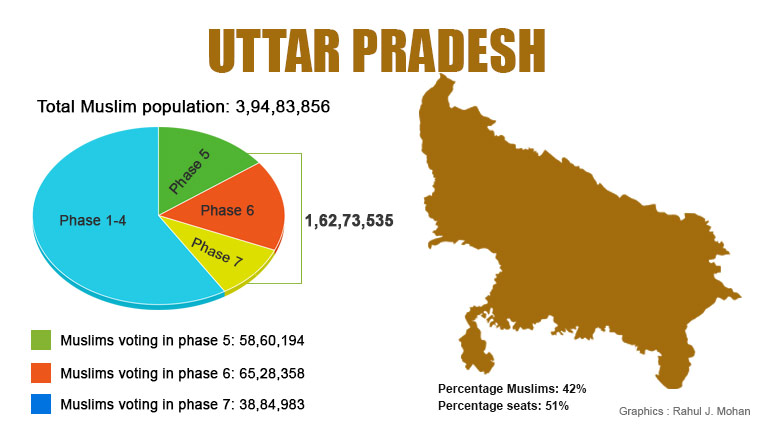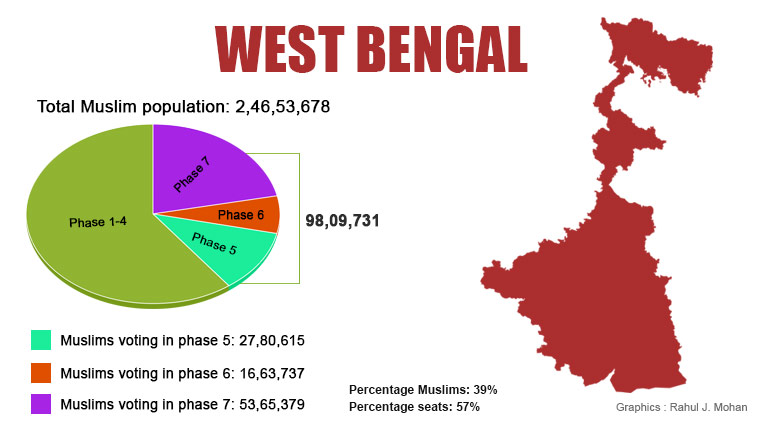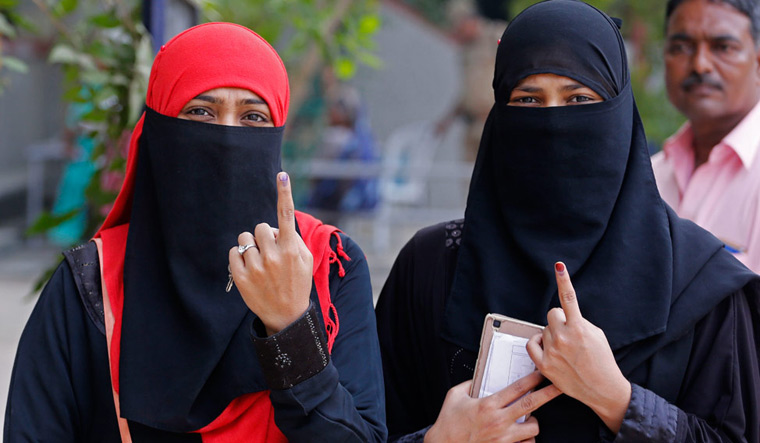On Monday, fresh controversy erupted over the seven-phase polls announced by the Election Commission for the upcoming Lok Sabha polls. Kolkata Mayor and TMC minister Firhad Hakim brought up the issue of the election schedule clashing with the Muslim holy month of Ramadan and alleged the Modi government “did not want minorities to vote” in large numbers.
Hakim was quoted by ANI as saying, “Election Commission is a constitutional body and we respect them. We don't want to say anything against them. But seven-phase elections will be tough for people in Uttar Pradesh, West Bengal and Bihar. It will be most difficult for those who will be observing Ramadan at that time.”
also read
- Supreme Court upholds validity of UP Madarsa Education Board Act
- Decline in Christian population of Goa; Muslim population increased by 9 pc’, says Goa Governor Sreedharan Pillai
- JPC on Waqf Bill meets for first time; BJP allies call for wider discussion
- Women Law Board offers guarded support to Waqf amendment
“Minority population in these three states is quite high. They'll cast votes by observing roza. EC should have kept this in mind,” he said. Only these three states will have voting across all seven phases of the Lok Sabha elections.
AAP leader Sanjay Singh, according to Times of India, raked up the same issue and questioned how Muslims can vote in large numbers when they are fasting. Senior Samajwadi party leader Azam Khan, according to ANI, decried the decision, saying Muslims are treated like tenants in today’s India.
Then there were the dissenting voices. All India Majlis-e-Ittehadul Muslimeen (AIMIM) chief Asaduddin Owaisi said the controversy was uncalled for. "This whole controversy is totally uncalled for and unnecessary. I would earnestly request those political parties, please don't use the Muslim community and Ramadan for whatever reasons you have," ANI quoted the Hyderabad MP. "Muslims will definitely fast in Ramadan, they go out and lead a normal life, and they go to the office. Even the poorest of the poor will also fast. My analysis is that this month [Ramadan] will lead to more voting percentage because one will be free from all worldly duties," he said.
But, what does data show us? Prominent psephologist and Swaraj India president Yogendra Yadav tweeted: “I requested a friend to run statistical check to see if there is greater concentration of Muslim voters in seats that fall during Ramadan (phase 5,6,7). Analysis does not confirm this suspicion. Only 26 per cent of Muslim voters vote during Ramadan. Doesn't look like a fair accusation.”
I requested a friend to run statistical check to see if there is greater concentration of Muslim voters in seats that fall during Ramzan (phase 5,6,7).
— Yogendra Yadav (@_YogendraYadav) March 11, 2019
Analysis does not confirm this suspicion. Only 26% Muslim voters vote during Ramzan. Doesn't look like a fair accusation. https://t.co/6xHoIstq2R
Election data of Uttar Pradesh and West Bengal, analysed by THE WEEK, show that there is no undue concentration of Muslim-dominated seats in the ‘Ramadan’ phase of the polls. In the final three phases, starting May 6 (the holy month of Ramadan commences on May 5), 42 per cent of Uttar Pradesh’s Muslims vote in 41 constituencies out of the total 80 (more than 50 per cent seats). Around 39 per cent of West Bengal’s Muslims vote in the final three phases, in 24 out of the total 42 constituencies (57 per cent seats).


In Uttar Pradesh, nine out of 41 seats, going to polls in the final three phases, are Muslim-dominated [i.e., the percentage of Muslims is higher than the state average]. Sitapur, Lucknow, Barabanki, Bahraich, Kaiserganj, Gonda, Shrawasti, Domariyaganj and Varanasi make up those nine constituencies.
In West Bengal six out of 24 seats, going to polls in the last three phases, are Muslim-dominated. Uluberia, Barasat, Basirhat, Jaynagar, Mathurapur and Diamond Harbour make up those six constituencies.

Muslim-dominated: seats where the percentage of Muslims is higher than the state average
Data from the 2011 Census and ElectionsInIndia



